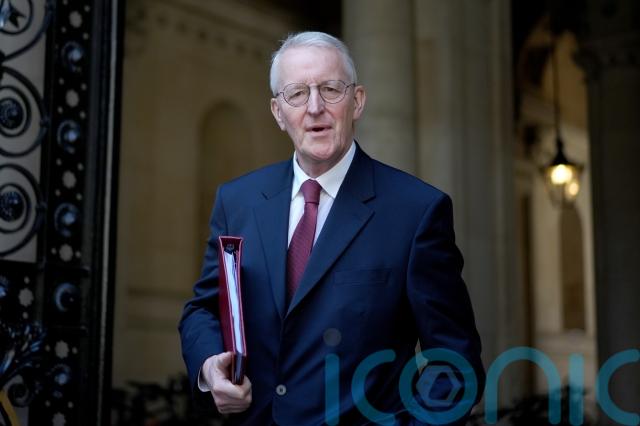
The chairman of the Omagh Bombing Inquiry has rejected a bid by the Government to redact the names of junior civil servants in documents shared with other parties involved in the probe.
The Northern Ireland Office (NIO) had argued that junior members of the Civil Service had more expectation of privacy than senior civil servants and it had raised potential security concerns over sharing their names.
Inquiry chairman Lord Turnbull refused the application made by Northern Ireland Secretary Hilary Benn in a ruling published on Tuesday and the documents, which are already in the possession of the inquiry, will now be shared with other core participants.

The chairman made clear that the issue under consideration only related to sharing the documents with other core participants in the inquiry, and did not relate to the potential for them to be made public.
Lord Turnbull stressed that all core participants are bound by confidentiality agreements. He said the issue about the potential publication of the names during the inquiry proceedings would be dealt with at a later juncture.
“This ruling is not concerned with the separate question of whether the content of any documentation which is disclosed in an unredacted fashion may, in due course, be aired in evidence and, or, published in the media,” he said.
The Real IRA bomb in the Co Tyrone town in August 1998 killed 29 people, including a woman who was pregnant with twins, in the worst single atrocity in the Troubles in Northern Ireland.
The public inquiry was set up by the previous government to examine whether the explosion could have been prevented by the UK authorities.
Mr Benn’s application was considered during procedural hearings in Belfast last month. During proceedings, the inquiry also considered a submission on the PSNI’s position in respect of disclosing the names of people suspected of involvement in the 1998 attack and other linked terror activity. The PSNI did not make an application for redaction, and instead just set out its own view in respect of the issue.
During the hearings, several media organisations also made representations in respect of both the Government and PSNI’s submissions.
In relation to the naming of suspects, Lord Turnbull said the matter was more “straightforward” than the application to redact junior civil servants’ names.
“In the end, there was no dispute between any of the contributing counsel as to what the correct approach should be,” he added.
The inquiry intends to put suspects in one of two categories – those who have been named publicly in the media or Parliament already, and those who have not.
Those in the first category will be assumed not to have a “reasonable expectation” of privacy.
Those in the second category will be subject to further examination by the inquiry to consider issues around privacy rights and security risks.
Subscribe or register today to discover more from DonegalLive.ie
Buy the e-paper of the Donegal Democrat, Donegal People's Press, Donegal Post and Inish Times here for instant access to Donegal's premier news titles.
Keep up with the latest news from Donegal with our daily newsletter featuring the most important stories of the day delivered to your inbox every evening at 5pm.